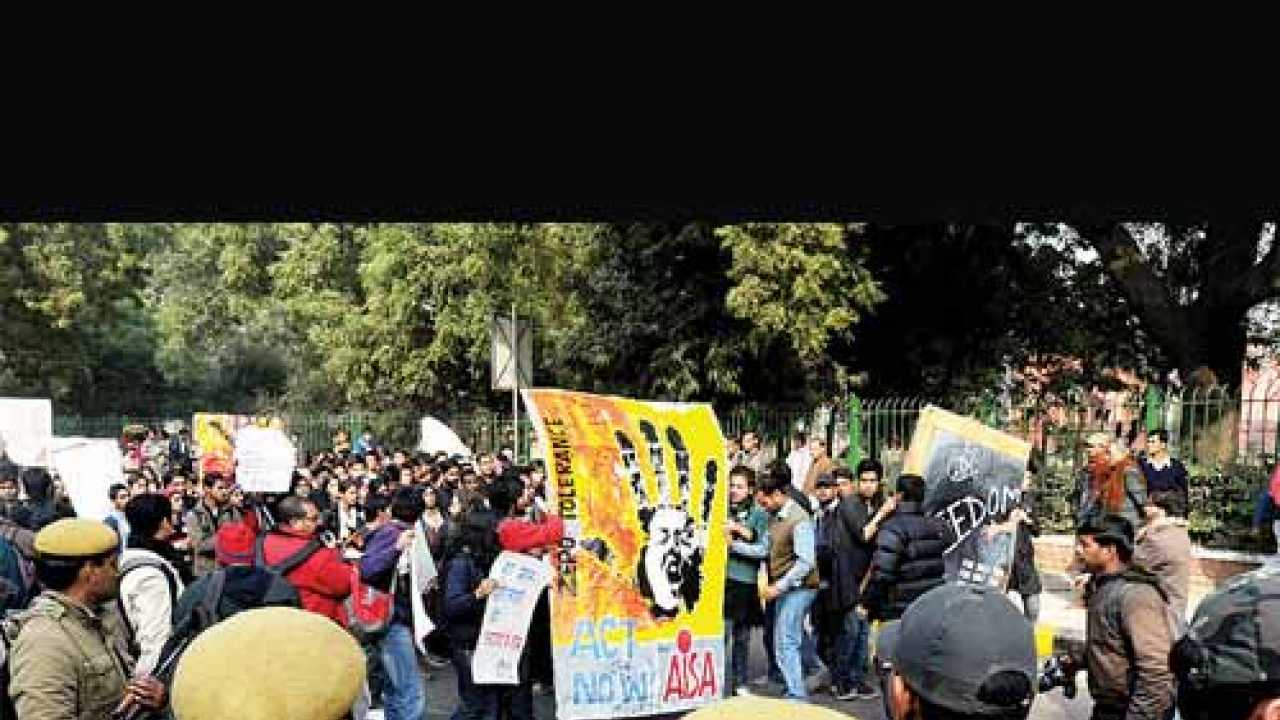
The Boston Tea Party, British America, December, 1773. The storming of the Bastille, France, 1789. The Russian revolution, March 1917. The protests against Delhi gang rape case, India, December 2012. What is common in all these? Obviously the fact that these protests served as the proverbial last straw for the existing regimes which were either thrown out or forced to change the laws and accept the will of the common man.
The other more significant commonality is the absence of any one leader who led these movements. In all these watershed events, no one sought to draw inspiration from anyone or waited for a beacon to show the way. In the Delhi rape case also, the path unfolded in front of all of us as we marched on in protest, the 23-year-old girl’s pain stoking our anger further, making us demand from the government the anti-rape law, which believe it or not, got passed in a matter of three months.
The merits or demerits of the clauses are not the point here. The bigger point is that the common man acted as the true opposition to the elected parliament and forced it to make India a truly representative democracy and not just a passively elected one. We unwittingly participated in a referendum of sorts (ordered ironically not by the government but by the common man) when Justice Verma asked for suggestions from the members of the public to help the government decide on an important issue like the anti-rape law. We pushed the government to act in the Delhi rape case. We can push it to act on all such things we expect from an efficient government.
The question, if we are truly democratic in our minds, raised in part one of this discussion, has been answered by our own actions in the case of the anti-rape law. We do not look for formal hierarchical structures or seek leaders when we have been tested enough. The problem with our flawed democracy is that everyone from the government to the opposition to the common man – all have focused for far too long on the ‘cratus’ of democracy (Latin for rule) and undervalued the ‘demos’ (Latin for people) in it.
The healthy trend that seems to be emerging is the demand for doing a referendum on issues that concern us shall come from the members of the public than the government.
The signs are already there. It began informally with the Delhi rape case. We are already used to voting for our favourite talent in reality shows. We are making ourselves heard through protests and candle marches. We are no longer hiding behind pseudonyms when we reveal openly what’s on our minds on social networks.
Technology and the voice of people together can pave the way for a more representative democracy – one that is driven by referendums and initiatives from the common man. And the Delhi rape case clearly shows us how, despite apathy and opposition from the ones we elected, people forced the government to heed to the common man.
Our tendency to look for a leader to show us the way, surfaces only when we are not committed fully to the cause we are championing or we are not suitably repulsed by the malaise we are fighting. We wait for someone else to take up the cudgels and then conveniently take sides on who is doing it better. That is perhaps why we have a resigned attitude to corruption. We find it an inevitable ingredient of modern politics. We are not exactly fulminating with anger on the many scams that are getting unearthed every day.
We can, if we have the collective will, push the government machinery to act even on this social malaise. But why disturb the edifice under which all of us are conveniently residing?
One may argue that the will in the common man is there but clarity on what path to take is not. Perhaps that is correct. Because, when we seek a leader, our primary assumption is that perhaps s/he knows that elusive path. We do not question the leader’s credentials or integrity. But, of late, we have started realising that the leaders are not ideal and have their fifty shades of grey. And that is more the rule than exception these days – be it in any field. But the common man has the power to be the true opposition. Leaders may have grey shades, but at least we know that the causes are still black or white.
(The write is a managing consultant at The Key Consumer Diagnostics Pvt Ltd, a Mumbai-based qualitative research company)